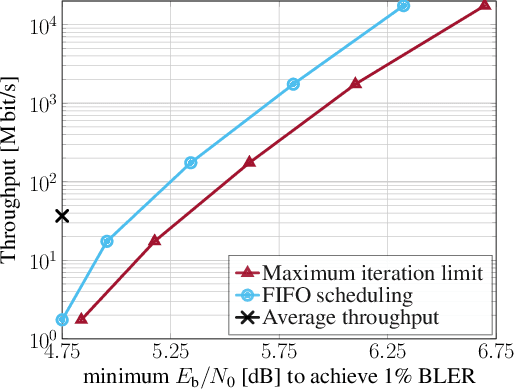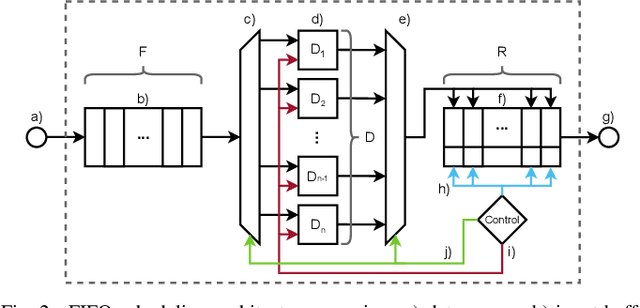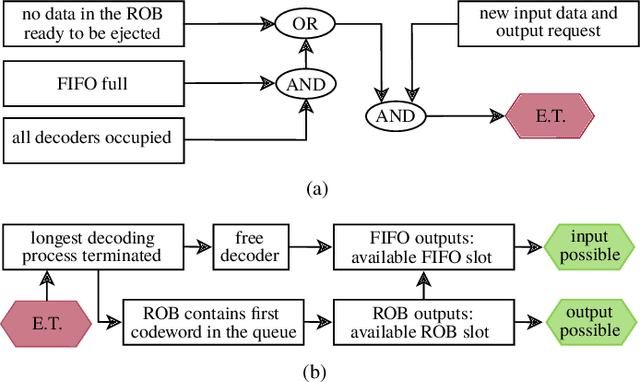Fixed-Throughput GRAND with FIFO Scheduling
Paper and Code
Feb 07, 2025



Guessing random additive noise decoding (GRAND) is a code-agnostic decoding method that iteratively guesses the noise pattern affecting the received codeword. The number of noise sequences to test depends on the noise realization. Thus, GRAND exhibits random runtime which results in nondeterministic throughput. However, real-time systems must process the incoming data at a fixed rate, necessitating a fixed-throughput decoder in order to avoid losing data. We propose a first-in first-out (FIFO) scheduling architecture that enables a fixed throughput while improving the block error rate (BLER) compared to the common approach of imposing a maximum runtime constraint per received codeword. Moreover, we demonstrate that the average throughput metric of GRAND-based hardware implementations typically provided in the literature can be misleading as one needs to operate at approximately one order of magnitude lower throughput to achieve the BLER of an unconstrained decoder.
 Add to Chrome
Add to Chrome Add to Firefox
Add to Firefox Add to Edge
Add to Edge